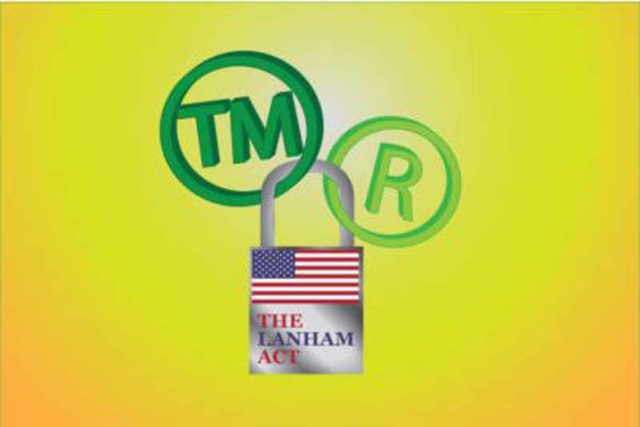What are copyrights?
Copyrights are a form of intellectual property protection that grants creators exclusive rights to their original works. Copyright protection arises automatically upon creating an original work, such as literature, music, or art, fixed in a tangible medium of expression. Though not mandatory, registration with the U.S. Copyright Office provides additional benefits, including the right to sue for infringement and statutory damages.
Acquiring, auditing, monitoring, and enforcing copyrights involve various legal actions, such as registering the work, sending cease-and-desist letters, and pursuing litigation against infringers. For example, a Florida-based author who discovers unauthorized copies of their book being sold online may send a cease-and-desist letter and, if necessary, file a lawsuit in federal court to enforce their copyright.
Need an intellectual property advocate? Schedule your consultation today with a top intellectual property protection attorney.
In Florida, which laws and regulations apply to protecting copyrights?
In addition to the federal Copyright Act, Florida has several state laws that address intellectual property protection, including copyrights. The Florida Uniform Trade Secrets Act covers the misappropriation of trade secrets, which may intersect with copyright issues in some instances, such as software development. Additionally, Florida’s Deceptive and Unfair Trade Practices Act protects from unfair competition, which may sometimes involve copyright infringement.
It is essential to understand that although these Florida state laws may apply to some aspects of copyright protection, federal law generally preempts state laws in the area of copyrights. Therefore, copyright owners should primarily rely on the federal Copyright Act and related regulations to guide acquiring, auditing, monitoring, and enforcing their copyrights.
What are the strategic benefits of protecting copyrights?
Effective navigation of intellectual property law enables the following for businesses:
- Legal protection: Acquiring copyrights grants exclusive rights to the owner, allowing them to control the reproduction, distribution, and public display of their work. Under the Copyright Act, these rights provide a solid legal foundation for protecting intellectual property.
- Enhanced market position: By obtaining and enforcing copyrights, creators can prevent competitors from exploiting their original works, securing a competitive advantage in the marketplace.
- Monetization opportunities: Copyright holders can generate revenue by licensing their works to third parties, allowing them to earn royalties or other forms of compensation. Royalties can lead to a steady income stream and an increased return on investment.
- Litigation support: Registering copyrights with the U.S. Copyright Office enables the owner to sue for infringement and seek statutory damages. These enhanced remedies can serve as a powerful deterrent against potential infringers and provide significant leverage in litigation.
- Reputation management: Auditing and monitoring copyrights ensure that a creator’s work is properly attributed and respected, which can contribute to a positive reputation in the industry, leading to potential collaborations and professional opportunities.
When a set of facts is appropriate for legal intervention, there are many paths a claimant may take. We are value-based attorneys at Jimerson Birr, which means we look at each action with our clients from the point of view of costs and benefits while reducing liability. Then, based on our client’s objectives, we chart a path to seek appropriate remedies.
To determine whether your unique situation may necessitate litigation or another form of specialized advocacy, please contact our office to set up your initial consultation.
What copyright issues commonly lead to intellectual property litigation?
The following issues commonly lead to litigation:
- Infringement: Unauthorized use or reproduction of copyrighted material is the most common cause of litigation. Infringement cases often involve disputes over whether the defendant’s work is substantially similar to the copyrighted work and whether they had access to the copyrighted material.
- Fair Use: The fair use doctrine allows limited use of copyrighted material without permission under specific circumstances, such as education, research, or criticism. Disputes over whether a particular use qualifies as fair use can lead to litigation.
- Ownership disputes: Conflicts may arise over who owns the copyright to a specific work, especially when multiple individuals contribute to its creation. These disputes can involve questions of authorship, work-for-hire agreements, or joint ownership.
- License violations: When a copyright holder licenses their work to a third party, disagreements may occur over the scope of the license or whether the licensee has complied with the terms of the agreement. Such disputes can result in litigation.
- Termination rights: Under the Copyright Act, creators have the right to terminate certain grants of rights after a specific period. Disputes over the validity of termination notices and their effects on existing agreements can lead to legal battles.
Please contact our office to set up your initial consultation to see what forms of intellectual property protection may be available for your unique situation.
What actions should counsel take to protect copyrights effectively?
Counsel should consider the following to protect their clients:
- Register the copyright: Counsel should ensure clients register their works with the U.S. Copyright Office. Registration is necessary for pursuing infringement lawsuits and seeking statutory damages and attorney’s fees.
- Monitor unauthorized use: Counsel should help clients develop strategies for monitoring potential infringements, including using digital tools, tracking online platforms, and implementing content protection systems.
- Issue Cease and Desist Notices: Upon identifying an infringement, counsel should issue a cease and desist notice to the alleged infringer. This notice informs the infringer of the suspected violation and demands they immediately stop the unauthorized use.
- Negotiate Licensing Agreements: Counsel may negotiate to resolve disputes through licensing agreements or settlement arrangements, allowing the alleged infringer to continue using the copyrighted material under specific terms.
- Litigate infringement claims: If negotiations fail or the infringement continues, counsel should prepare to litigate the infringement claim in court, using the Copyright Act and relevant Florida statutes as the legal basis.
Frequently Asked Questions
- How long does copyright protection last?
Copyright protection typically lasts for the life of the author plus 70 years. For works made for hire and anonymous or pseudonymous works, protection lasts 95 years from publication or 120 years from creation, whichever is shorter.
- What is the Digital Millennium Copyright Act (DMCA), and how does it help enforce copyrights?
The Digital Millennium Copyright Act (DMCA) is a federal law designed to address copyright issues in the digital age. It provides a safe harbor for online service providers (OSPs) if they promptly remove infringing content upon receiving a valid takedown notice. Copyright owners can use the DMCA takedown process to enforce their rights against online infringements.
- Can I use copyrighted material without permission if I give credit to the original creator?
Giving credit to the original creator does not necessarily exempt you from copyright infringement. You must obtain permission from the copyright holder or rely on a valid exception, such as fair use, to legally use copyrighted material without permission.
Have more questions about how intellectual property protection could impact your business?
Crucially, this overview of protecting copyrights does not begin to cover all the laws implicated by this issue or the factors that may compel the application of such laws. Every case is unique, and the laws can produce different outcomes depending on the individual circumstances.
Jimerson Birr attorneys guide our clients to help make informed decisions while ensuring their rights are respected and protected. Our lawyers are highly trained and experienced in the nuances of the law, so they can accurately interpret statutes and case law and holistically prepare individuals or companies for their legal endeavors. Through this intense personal investment and advocacy, our lawyers will help resolve the issue’s complicated legal problems efficiently and effectively.
Having a Jimerson Birr attorney on your side means securing a team of seasoned, multi-dimensional, cross-functional legal professionals. Whether it is a transaction, an operational issue, a regulatory challenge, or a contested legal predicament that may require court intervention, we remain tireless advocates at every step. Being a value-added law firm means putting the client at the forefront of everything we do. We use our experience to help our clients navigate even the most complex problems and come out the other side triumphant.
If you want to understand your case, the merits of your claim or defense, potential monetary awards, or the amount of exposure you face, you should speak with a qualified Jimerson Birr lawyer. Our experienced team of attorneys is here to help. Call Jimerson Birr at (904) 389-0050 or use the contact form to schedule a consultation.


We live by our 7 Superior Service Commitments
- Conferring Client-Defined Value
- Efficient and Cost-Effective
- Accessibility
- Delivering an Experience While Delivering Results
- Meaningful and Enduring Partnership
- Exceptional Communication Based Upon Listening
- Accountability to Goals









